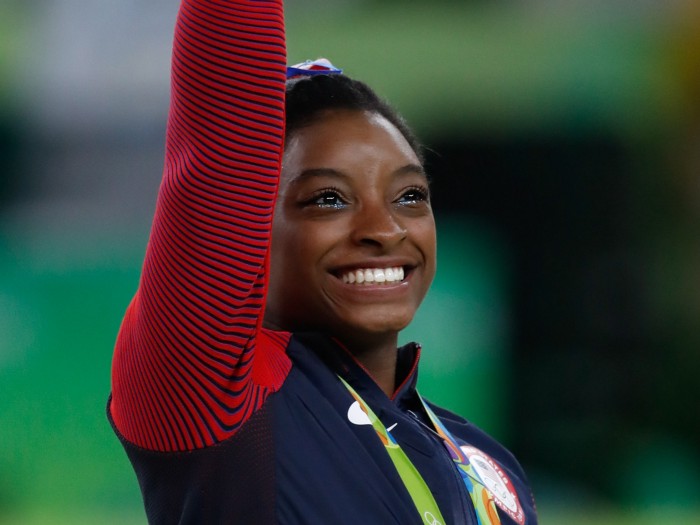Four lessons from Simone Biles about trauma and life
After the flame from the Tokyo 2020 Olympics extinguished and I reflected on the events, my attention focused, more than anything else, on the experience of Simone Biles. In her conduct, she exemplified excellence as a role model and a teacher. In addition, through her example, she has offered invaluable lessons about honoring limits, the mind/body connection, recovering from traumatic stress, and shifting from an individual orientation to a collective focus.
1 — Respecting limits
While Simone has already brought the sport of gymnastics to a new level through all kinds of amazing feats on the balance beam, vault, and uneven bars, in this Olympics, she showed to the world that being human includes limits that deserve acknowledgment and respect.
While she had spent countless hours preparing to compete, and the hopes and expectations of many people were riding upon her success, she bravely confronted the reality that she could not compete safely. Accepting these limits and honoring the boundaries of her capacity meant valuing her safety over the accompanying disappointment — for herself and others. In this Olympics, respecting her physical, psychological, and emotional limits became one of her most remarkable feats yet.
2 — The mind/body connection
Simone has become a teacher about the mind/body connection. Though her body likely could have physically done what was required to compete, her mind could not do its part. While I do not claim to fully comprehend what happened for her (with the “twisties”), my experience as a body/mind psychotherapist provides me with theories.
From her significant training, she had sufficient muscle memory to perform her routines, and she had managed the pressure of this situation in many past competitions. Simone’s struggles emerged in twists, which requires the mind to tolerate the disorientation of the body moving through space while simultaneously finely calibrating to locate contact with the ground. The mental focus and attention required to navigate this eluded her this time.
3 — Post Traumatic Stress Response
Understanding the limits of Simone’s focus requires exploring the impact of post-traumatic stress. Specifically, Simone stated that being at the Olympics activated memories of Dr. Larry Nassar, the former team doctor for USA Gymnastics, who repeatedly abused her and numerous other Olympic athletes, including at the last Olympics of 2016.
From my practice as a psychotherapist working with clients who suffered traumatic events, I have learned that people can compartmentalize painful events, putting them out of their mind for long periods — years or even decades.
When something in the present reminds them of the painful event, memories return. Along with memories, painful emotions emerge and require attention. This can derail a person from focusing on other things until the memory and emotions are acknowledged, felt, witnessed, and processed.
Processing traumatic events requires significant mental and emotional energy. A person coping with post-traumatic stress may be able to manage familiar, straightforward tasks of life (i.e., driving, walking, cooking, eating), but they do not have the focus required for tasks that require more of them.
I can imagine that gymnastics involving the mental feat of orientating in space through twists may have been more than Simone’s mind could manage, in conjunction with processing the complex emotions and memories from the trauma. With her body connected to the ground and moving in a relatively linear direction, she could access the mental energy necessary to block out difficult memories and emotions.
However, twisting and turning through space mixes up one’s thoughts and feelings and one’s body; her mind may not have been able to both block or process painful experiences and also focus on the complexity required with twists.
I had an experience with my partner recently, which provided a simpler example of this. Our dog had become ill, which activated memories for my partner of previous pet illnesses with unfavorable outcomes (if you’ve had pets for any length of time, you know this is inevitable but sad and sometimes painful).
My partner rested more than usual over the weekend, and on Sunday afternoon, we went for a walk at a familiar place. The walk began on pavement and then moved onto a path in the woods. Shortly after shifting into the woods, with the uneven ground, she took a bad fall. I believe that in her compromised state of processing past trauma and the anxiety which accompanied this, her mind could manage walking on pavement, but not the more complex adjustments required to navigate the uneven woods path.
4 — From me to we: a value beyond winning
Finally, through the likely deep disappointment of not being able to compete fully in the Tokyo Olympics, Simone maintained a positive attitude and became a great support for her teammates rather than keeping the focus on herself. Throughout the remainder of the competition, she coached them, cheered for them, celebrated their victories, and shared their losses.
While Simone may have felt frustrated about her inability to compete at her usual level, she did not become consumed with hopelessness, bitterness, or resentment. Instead, she adjusted her expectations, shifted her balance beam routine, and encouraged her team members.
Simone may not have brought home a gold medal this time, but she landed solidly on her feet. She taught the world what exists beyond gold by honoring herself, including her limits and needs, modeling the importance of mental health, and demonstrating leadership in supporting her teammates.
Thank you, Simone






